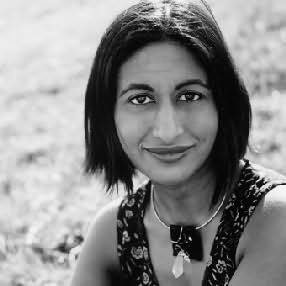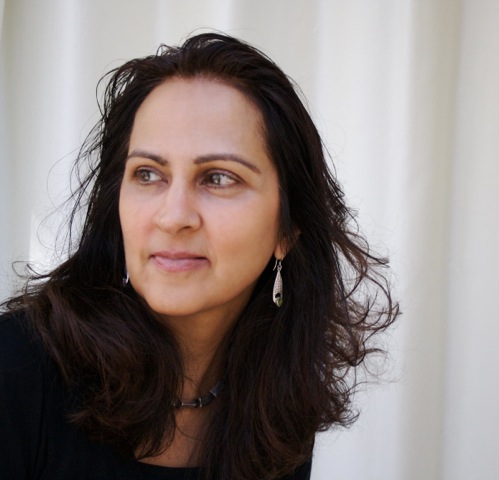Tishani Doshi was born in Madras to a Welsh mother and a Gujarati father, and is based in India, after periods living in America and England. Her first book of poems, Countries of the Body won the 2006 Forward prize for best first collection. She was the winner of the 2006 All-India Poetry Competition, and a finalist in the Outlook-Picador Non-fiction competition in 2005. Her first novel, The Pleasure Seekers, will be published by Bloomsbury in 2009. Currently underway is a second volume of poetry and a biography of the Sri Lankan cricketer Muttiah Muralitharan. The Asian Writer caught up with Tishani to find out more about the talented young artist.
Tell me more about your journey as a writer?
I guess I started thinking of myself as a writer when I was in my early 20s. I was in university in America at the time, and it was the first time I really felt that it was okay to choose being a poet as a vocation! I’ve always loved words. I used to keep journals and write letters, and I think it was a very natural progression for me, to start with poems and experiment with different forms. I’ve spent 3-4 months a year here over the last 6 years and even lived in London for a couple of years before that, so London is very much a second home. But the place that I consider home, is Madras.
What is it like being a visiting writer? Do you feel connected to your audience and is it different from being at home?
I’ve always enjoyed being the visitor. The outsider. I think it’s a position that the writer assumes naturally wherever they are. So I feel like a visitor even when I’m home. It gives you that slightly angled stance from which you can view the world – and I think it’s an important thing to have as a writer. As for connection with audiences – I suppose it all depends. I’ve performed as a dancer and as a poet in many places, and of course, with dance the wonderful thing is that you don’t need language, so the response is and can be visceral – but with poetry, I feel sometimes, the constraint of language. I write in English, so for people who don’t understand English, it relies on translations etc – so, in that sense, it’s slightly limiting.
What do you hope to achieve over the course of this year?
I’ve only just had the final draft of my novel approved, so I’d hope mainly that I can just file that away and begin something new. The prospect is quite daunting because I’ve spent 6 years with this book, but the hope is that something will bloom!
Your debut novel is published next year, are you nervous about it at all?
Yes and no. In a sense, with a first book, you’re going in with a very different/fresh approach. Nobody is judging you by any previous work and the work when judged, will stand on its own. I’m curious to see how it’s perceived, more than anything else, but like I said, when you spend so long with something, you begin to lose sight of what other people think. You did the work you had to do, and then you move on. I’d be far more nervous about the second one I think.
Could you give us a little flavour of what to expect from your first novel?
Well – I suppose it’s a little poetic and a little funny and a little sad and a little dreamy all at the same time.
You’re an acclaimed poet, moving into the novel format – how was that transition for you? Or is it all just good writing for you?
I always knew that I wanted to tell this story – it’s loosely based on the love story of my parents (welsh woman meets Indian man in the 60s etc). So I knew this was going to develop at some point in my writing career. It took a long time because I’m not used to fiction at all – I find it takes a different set of skills entirely. A lot of stamina, for one, which you don’t really need for poetry. And the ability to contain this entire universe in your head. Poetry is so much more containable. It’s this one intense act, filled with a lot of joy and obsessive ness and bouts of despair – but ultimately the process is entirely different. There is the “inspired” moment, whereas with fiction writing – it’s a lot of let’s just get on with it. It’s been a very interesting journey for me though. And while I’d say that my first instinct is still for poetry, I’ve learned a bit about the secret architectures of novels – and there’s something terribly lovely about that too.
What’s next for you as a writer?
I’m halfway through a new book of poems, and I’ve been making notes for a new novel for some months now. Short stories too. I have about 10 of them lying around in different stages of completion.
What advice would you give to our readers, many of whom aspire to being published?
Read, write and persist.
What or who has had a major influence on you, and your writing?
When I was 25 I met a woman called Chandralekha who was then 73. She was a writer, dancer, painter, feminist all rolled into one, and I was to work with her for 6 years until her passing. She made a dancer of me, which I thought was quite amazing – because it wasn’t something I was looking for, and it added a very different dimension to my personality. But more than that, she embodied this idea of art and life, not separating between them. I spent many evenings in her home, literally every day for six years, listening and talking to the people who came through – writers, painters, filmmakers, mango-growers, heart surgeons – and I understood something of interconnectedness, the need for no compartments… more importantly though, I understood the discipline it takes to be an artist, any kind of artist, a daily dedication to your craft, which I never really practised before. So all this had much more of an effect on my writing than reading say, Joyce or Neruda or something like that. I mean, sure, different writers speak to you from beyond the grave or the page – and you connect with them and it inspires you undoubtedly – but for me, I’ve always thought, meeting Chandra was the turning point in my life because it made me understand how an artist must or can live, which is not something you necessarily get by reading books.
What has writing taught you as a person, and what do you hope that people get from your work?
It’s taught me that I’m inherently a very lazy person and that I have to overcome this every single day. It’s taught me that I’m incredibly lucky to know what I love, so rather than spend the rest of my life about thinking – what is it that I really love to do? I only have to spend the rest of my life thinking how I can make a living doing what I love to do. And as far as what people get from it – what can I say? Some kind of connection. To feel that it wasn’t a total waste of their time. Leave some word or sentence or idea knocking about in their heads for some time to come – yes, that would be nice.

